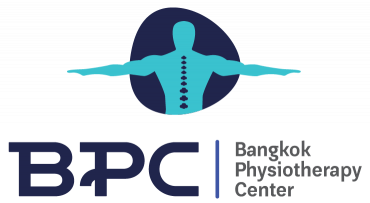
Pregnancy is a tumultuous journey. It’s emotionally demanding and physically overwhelming. From preparing your home to visiting doctors, and organising the birth – the list simply doesn’t end. After 9 months, you have the beautiful gift of a child in your arms. However, the journey doesn’t stop here. The first few years after giving birth can be overwhelming in many ways, with a lot of pressure on the first few months after delivery. One of the more common issues new mothers face is painful breastfeeding.
We understand. Breast pain after pregnancy is not what you want at this point in your experience of motherhood. You were hoping for a magical first few months with your infant, and now one of the most intimate experiences of being a new mother is being hindered by more discomfort.
The good news is that we gather vital information from our team of physiotherapists, so if you want to learn more, you’ve come to the right place. Let’s take a closer look.
Understanding Normal Breastfeeding Discomfort
Some amount of discomfort is to be expected in the initial stages of breastfeeding, and it’s not unusual to feel some sensitivity and tenderness. Your body has changed, and you’re perceptive to these changes. So what do these changes look like?
Initial Tenderness: The First Few Days
Your initial experience of breastfeeding is not always as smooth sailing as you might expect. The constant latching and pressure can take some time for your body to get used to. This can cause your nipples to feel heightened sensitivity and tenderness. This subsides in a few weeks, sometimes sooner.
Uterine Cramping During Feeds (Postpartum)
Simply put, uterine contractions occur as your uterus shrinks back to its original size – a necessary step in the recovery process. During the first few weeks after birth, uterine cramping is a normal side effect. This can often happen during breastfeeding, due to the release of oxytocin, a hormone that aids uterine contractions.
Engorgement: Fullness and Tenderness
Within the first few days postpartum is when your milk comes in, which leads to breast engorgement. This means they can feel larger than normal, very full, and tender. Don’t worry, this is a completely normal physiological response. Your body is establishing a steady supply of milk for your little one.
Breastfeeding and pumping can help relieve some of the pressure and discomfort here. Consult your doctor to learn how to better manage your engorged breasts and alleviate the soreness from breastfeeding.
Signs Your Breastfeeding Pain Is NOT Normal (and What It Might Be)
So we’ve established a set of discomforts and pains that are to be expected. Don’t forget, your body is undertaking a gargantuan task, and it requires a great deal of adjustment on emotional, mental, and physical fronts. However, some pains are not normal and require immediate care from a qualified medical professional. How do you tell the difference?
Persistent or Severe Nipple Pain
Some new mothers experience a sharp, stinging sensation while breastfeeding. Sometimes it turns into a persistent nipple pain that accompanies every feed. Some common reasons for this can range from a poor latch to thrush, vasospasm, or nipple damage. Any of these reasons requires a visit to your doctor to ensure appropriate treatment.
Deep Breast Pain
Deep breast pain can be identified by dull aching or burning sensations deeper than the nipple, likely originating from the tissue and muscles within the breast. Hormonal changes are a common cause of these pains, which is often seen happening during pregnancy.
While breastfeeding, these pains can be symptomatic of larger issues like blocked lactiferous ducts, mastitis, or an abscess or cyst. This might be accompanied by other symptoms like fever, chills, swelling, or excessive heat from the affected area.
It’s highly recommended to consult a specialist for proper mastitis treatment so you can treat any clogged milk ducts appropriately.
When To Seek Professional Help
After birth, as well as during, your body is in a sensitive state. It’s important that you are listening to your body’s signals at all times.
If you’re experiencing any kind of discomfort, don’t hesitate to reach out to a medical professional who can guide you on treatment and better self care practices for your body during this season of life. Early medical intervention is key.
As a new mom, you might have a whole roster of medical professionals on speed dial, but it’s key to know who to contact when. For instance, a lactation consultant might be the right person to talk to for issues with latching. On the other hand, an OBGYN would be better suited to aid with issues like thrush or treating mastitis. If you suspect your infant might have oral thrush, it’s best to meet a pediatrician.
Conclusion
The plain truth is that parenting is simultaneously one of the most magical and challenging experiences you can have as a human being. Similarly, breastfeeding can be a rewarding experience, but if something isn’t right, the emotional and mental weight of it can be daunting.
Remember that these challenges are common, and can be treated quite easily, if attended to early enough.
If you live in Bangkok, or you’re looking for specialised treatment in Thailand, Bangkok Physiotherapy Center offers exceptional pre and post pregnancy care services. Contact us to make an appointment with our highly qualified team of medical professionals available for constant support.




